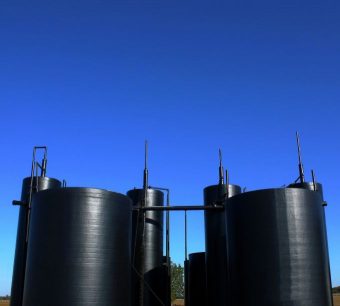
The World Bank has just upped its oil price forecast for 2017, saying it now expects average prices to be US$55 a barrel over the next year. That’s US$2 more than its earlier forecast, which is a reflection that at least some shred of optimism is returning to the oil market.
In late September, Saudi Arabia managed to persuade its OPEC co-members to consider a reduction in their combined crude oil output in a bid to, as they called it, restore balance to the oil markets. Balance, in this context, invariably means higher prices that would help Saudi Arabia – and other oil-dependent producers – plug growing budget deficits, and help Venezuela and Nigeria stave off a complete economic collapse.
As soon as the news about a general mood of agreement among OPEC members hit the global news flows, crude oil shot up, passing the US$50-barrier and staying there for almost a month now, which may well be the longest over-US$50 streak this year. As optimism returns to the market, it spreads, apparently, to analysts, exactly as pessimism does when the pendulum swings the other way.
Early this year, when OPEC was pumping at full tilt and frackers refused to give up, oil started slipping to new lows. At the time, all the big names in commodity market analysis, including Goldman Sachs, Morgan Stanley, BofA, and Citigroup, warned that crude could really fall to US$20 a barrel. Those were pessimistic times indeed.
Fast forward a few months, and we get Goldman Sachs (to pick just one), revising its oil price forecast to a much cheerier US$45-50. A few months more, and a day after that OPEC meeting that gave oil bulls a much-needed adrenaline shot, Goldman’s analysts were playing it safe: WTI would hover around US$43 a barrel until the end of 2016, down from the earlier US$50 forecast, it said.
Everyone is playing it safe except for the bolder speculators, and with a very good reason. Just three days after the World Bank released its revised outlook – noting that the OPEC freeze is very uncertain – Iraq said it won’t be taking part in any freezes or production cuts. This could very well spell the end of OPEC negotiations, since Iraq is OPEC’s second-largest producer after Saudi Arabia, and has been pumping a daily average of 4.7 million barrels, according to the State Oil Marketing Company’s head Falah al-Amri.
Add to this the vague comments on the agreement from Russia’s Energy Minister Alexander Novak and Saudi’s Oil Minister Khalid al-Falih, and the chances of a freeze agreement actually getting sealed plunge closer to zero.
Source: oilprice.com
